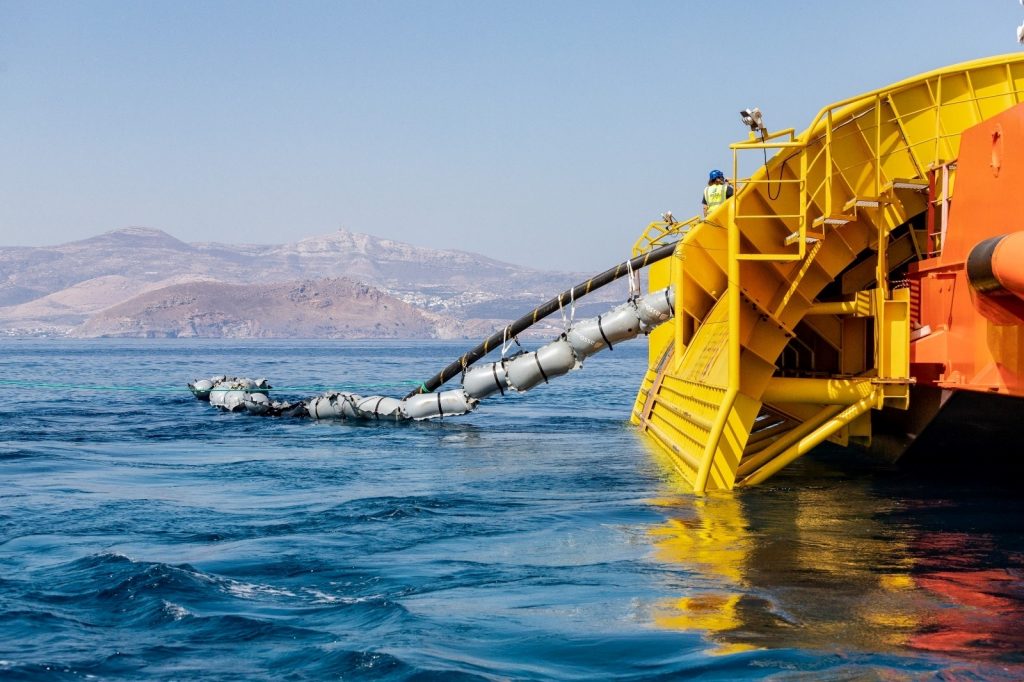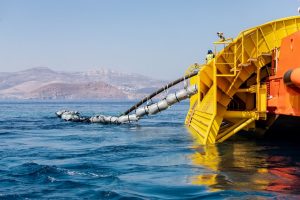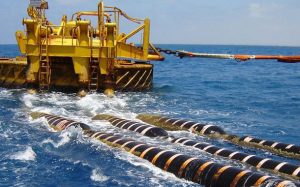The ongoing financial and diplomatic concerns over the future of the Greece-Cyprus-Israel undersea power project (GSI cable) the ambitious and technologically challenging Great Sea Interconnector, have led to a high-level meeting today in Nicosia, according to previous reports by OT.gr and other media.
The meeting to iron-out differences over the nearly two-billion-euro project, which aims to link Israel with Cyprus and mainland Greece via a 1,200km undersea power interconnector, is considered critical, as disagreements between the project’s stakeholders reached an impasse last July.
Last week, the project’s envisioned primary cable manufacturer, French multinational Nexans, essentially issued an ultimatum that it would stop all related work if problems were not resolved by last Friday, Sept. 6.
Today’s meeting
Today’s wide-ranging meeting includes representatives of all involved parties and will be chaired by the President of Cyprus himself, Nikos Christodoulides, highlighting the importance of the endeavor. Cyprus remains isolated in terms of connection with another power grid, and is forced to generate its own electricity – mostly from imported diesel oil – and to distribute the generated energy for domestic consumption, without the prospect of transporting excess energy elsewhere or relying on another provider.
Members of the Cypriot government, the legal services of the island republic, Greek Energy Minister Thodoros Skylakakis, the head of IPTO (Greece’s power transmission operator and the project’s chief backer), as well as representatives from Nexans will attend.
European Commission officials, who represent Brussels, which is financing the project with €657 million through the Connecting Europe Facility, will also attend.
OT reports that a high-level preparatory meeting was held by the Cypriot President on Monday, but that no Greek officials were in attendance as is customary in such situations, which raised some eyebrows ahead of Tuesday’s meeting.
Cost-sharing reportedly the biggest hurdle
Concerns are growing in Athens about the fate of the project and as a result the legal services of Greece’s ministry of energy are preparing for all potential outcomes, including the possibility of a complete breakdown, OT says.
Athens is also exploring options for claiming expenses that IPTO has already incurred for the project’s development.
OT reports that Nicosia has yet to resolve regulatory issues linked to geopolitical risks, which could affect the project’s implementation and the time needed to recoup costs.
However, OT also reveals that the biggest “bone” of contention in the Greece-Cyprus negotiations for the Great Sea Interconnector seems to be cost-sharing between the two sides, rather than geopolitical risks, all within the prism of significant differences, on a yearly basis, in the cost of electricity in the two countries.
According to Skylakakis, and based on studies by IPTO (officially called the Independent Power Transmission Operator) and public data on the energy markets of Greece and Cyprus, the cost of power generation on the latter is significantly higher – €72/MWh more expensive than the Greek market, to be precise.
As a result, Skylakakis recently stated that since the cost of electricity in the Cypriot market is so expensive, the cable will offer a significant benefit for Cypriot consumers under all realistic scenarios.






